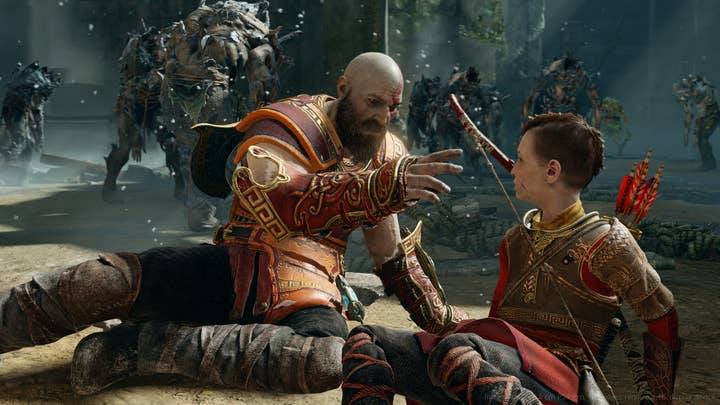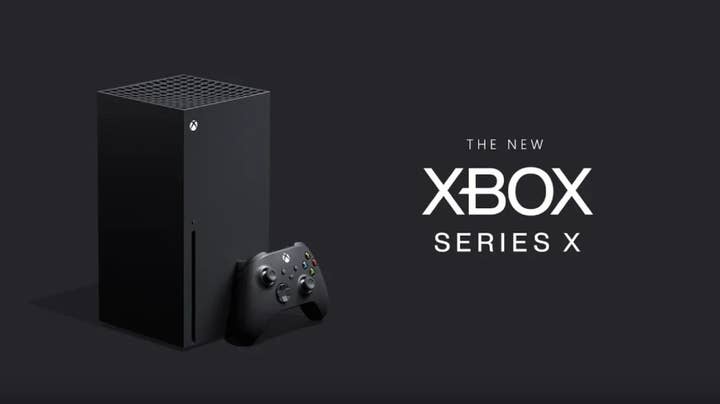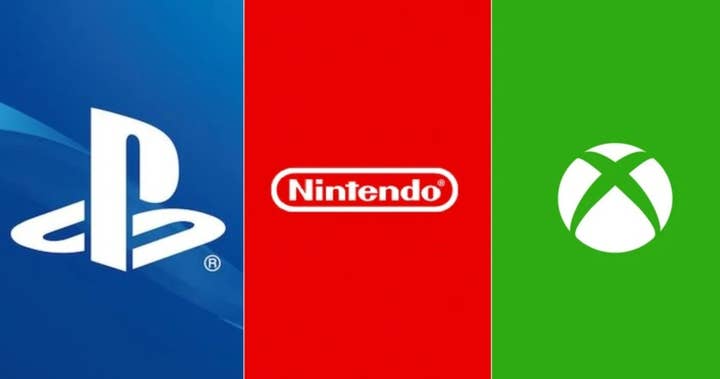Console makers lay out their 2020 visions | Opinion
Sony, Microsoft and Nintendo all have very different ideas of where the console market is going in 2020 and beyond - and it's even possible that they're all correct
It hardly needs saying to anyone who's lived through the political landscape of the past few years, but the arrow of time does not lead inevitably and consistently towards order and away from chaos. This applies to any sector of business as much as it does to the wider world, and we close out 2019 with various parts of our industry facing less certainty over what 2020 will hold than they may even have felt at the outset of this 12 months. For British developers and other game-related businesses, of course, the question of Brexit -- and what kind of future trading relationship will follow with the EU and other countries -- looms larger than ever yet somehow offers even less certainty than before.
There are plenty of other sectors facing uncertainty, too. Developers working primarily through PC digital storefronts have seen the sudden appearance of real competition, and while it's largely been welcomed, there's an undercurrent of concern in private conversations that the Epic Game Store and Steam could eventually turn to discounting rather than exclusives to gain competitive advantage -- further undermining an already fragile pricing relationship with consumers.
"Perhaps no part of the industry, however, has received so much clarity in 2019 as the console business"
Multiple countries are trying to figure out what kind of legislative or regulatory action, if any, is required over loot boxes, and while it could amount to little, the fear of such action coming in the form of an excessive crackdown on many industry practices is very real. Across many fields -- VR and AR, mobile gaming, game streaming, employment practices -- we've seen developments in 2019 whose resolution or continuation in 2020 is deeply uncertain. Questions have been raised by this year for which next year will need to provide answers.
Equally, however, we enter 2020 with a far clearer picture of developments and future trends in other parts of our industry -- from the all-but-confirmation that Apple is planning AR device releases in the coming year to the huge turnaround in Valve's commitment to VR represented by the planned launch of a VR-exclusive Half-Life game. Perhaps no part of the industry, however, has received so much clarity in 2019 as the console business.

We entered 2019 knowing that Microsoft and Sony would have to talk to some extent about next-gen hardware, while Nintendo's Switch gambit seemed to be paying off but the jury remained out on whether it might have a low ceiling on adoption. We leave the year knowing that Nintendo has struck it out of the park in a way that arguably even eclipses the success of the Wii -- and that Microsoft and Sony are pursuing very different, though in some ways surprisingly complementary, visions for the future of the console market. Next year will fill in the details, but 2019 has already shown us a lot of how the future is shaped, and why the console market, declared doomed or even dead so many times, remains such a vital part of our industry.
Of the three platform holders, Sony is arguably the one with its cards closest to its chest at this point in time, though it's still given us a pretty decent glimpse at what it's holding. In a sense, Sony has the least to reveal. The runaway success of the Switch notwithstanding, the PS4 'won' this console generation to whatever extent 'winning' is a relevant metric; as a result, Sony's stance is that very little is broken, and thus little needs fixing.
"It's unlikely that the next PlayStation will fiddle too much with the branding that's sold 100 million consoles in this generation"
It's unlikely that the next PlayStation will fiddle too much with the branding that's sold 100 million consoles in this generation -- I doubt anyone is offering profitable odds on the new device being "PlayStation 5" -- and that philosophy is likely to penetrate right to the heart of what will be an incremental, building-upon-success approach. It speaks volumes that the most comprehensive release of information we've had about PS5 thus far, and effectively the console's coming-out party, was a technical briefing by Mark Cerny. The meta-messaging here was the PS5 will be familiar, with the big changes -- and things like speedy SSD access to enable better streaming of game worlds and faster load times are genuinely major changes, albeit in a clearly evolution-not-revolution sense -- being under the hood.
Similarly, we can expect Sony to take a softly-softly approach to its experimentation with more dramatic shifts. Game streaming, for example, is likely to remain an optional element rather than being brought into the core of its offering, which may well turn out to be very wise given how much work national and local infrastructures in many places will require to support that kind of network usage. Ultimately, PS5 seems set to be the reassuring fixed point of reference in the console space in 2020 and beyond -- a solid, well-executed and quite traditional game console backed up by a firm whose efforts in first-party development are the unsung hero of the past half-decade or more.

Microsoft, on the other hand, has been far more forthcoming about what it'll be launching next year -- as well it might be, because it has so much more to prove than its rivals. Xbox One, and its eventual mid-generation update Xbox One X, have not had a good generation by any reasonable measure. Microsoft finds itself in the same position Sony was seven years ago (even arguably a little further behind) of having to discreetly frame its announcements regarding its new console in a way that heads off questions about why its old console didn't do very well.
Thus far, it's done that pretty well, I'd argue. There are questions over Xbox Series X -- not least of them being whether the naming is going to create confusion over whether this is a new and worthwhile console generation leap, mirroring the massive problems Nintendo had with explaining the poorly-named Wii U to consumers -- but none of them are "is Microsoft going to repeat the mistakes of Xbox One," because that feels quite comprehensively answered already. From the laser-sharp focus on gaming through to the very adroitly timed announcements about bulking up its stable of first-party studios (carefully done long before the console announcement, so questions about first-party support already felt well-handled by the time we saw the hardware), Microsoft has done plenty to separate itself from past mistakes and imply a return to the kind of strength it showed during the Xbox 360 generation.
"Microsoft is struggling to communicate the notion of Xbox being a contiguous, increasingly diverse platform"
Yet that's really only the window dressing to some degree, because what Microsoft is actually doing here isn't just "making a console that can compete with Sony." Indeed, I'm not even really sure how much Microsoft considers Xbox to actually be in direct competition with PlayStation any more -- especially given that the company is positioning itself as the cloud services provider for both of its major rivals and will thus benefit from overall industry growth, not just from the success of its own platforms.
Part of the reason that the Xbox Series X naming is so odd and the messaging around it seems so vague is that Microsoft is struggling a little to figure out how to communicate the notion of Xbox being a contiguous, increasingly diverse platform, not just a console or even a series of consoles. Xbox is a product family that's designed to evolve steadily rather than being confined by the sort of generational leaps we're about to see, and that's meant to be as much a software and services offering as a hardware offering. I don't doubt that part of Microsoft's intention is to reach a point where you can be as much an Xbox customer despite never owning Xbox hardware as someone who actually has one of their oddly-shaped devices under the TV.
That's a bold vision for quite a different future for the industry than Sony has in mind -- though there's nothing to say they can't co-exist in parallel -- but in some ways it's dwarfed by the ambition which Nintendo's current approach suggests. Nintendo has a speak-softly-and-carry-a-big-stick approach to such things. It doesn't really do braggadocio -- you can put that down to its Japanese roots but that hasn't dissuaded Sony in the past; it's really a question of corporate rather than national culture -- but it's nonetheless been making moves that speak to a quiet confidence in its ability to forge a very different future for itself to the ones its rivals envision.

Nintendo does have a problem in 2020. The remarkable performance of Switch is certainly going to be tricky to sustain in the face of next-gen launches from the other two market players, and it's likely that there'll be a speed bump in its market performance as a result. Yet what Nintendo is building towards at present is a vision of the future where that kind of speed bump no longer really matters; one where Switch, despite the head of steam it's got at the moment, is going to be just one of many vehicles for exploiting its IP and creativity, with merchandising, theme parks, cross-media licensing and mobile games all also playing key roles.
To call this the "Disney model" is accurate but undersells the ambition of it. We call it that precisely because no company other than Disney has ever achieved it, and one need only look to the runaway success of Disney+ and the remarkable performance of the company's parks year in, year out to see how transformative it can be for a company. If Nintendo can achieve this -- building its consistent revenue base from parks, stores, merchandising, mobile titles and so on up to a point where it starts to eclipse the games themselves in sheer revenue terms -- then it will have done something games company execs have daydreamed about for decades, namely freeing itself from the cyclical model of game hardware and the "spiky" nature of game revenues entirely.
It's unlikely this will happen fast enough to see off the speed bump in 2020 -- though it's worth noting that Nintendo will throw open the gates of its first theme park months before Sony and Microsoft open the gates on their respective next-gen consoles -- but as a multi-year strategy, it's vastly different from its rivals and unquestionably ambitious.
We enter 2020, then, with something quite unusual and very exciting in the offing: an evolution of the console market coming about not because something else like mobile steals its lunch, but because the key players in the market all have different, not necessarily incompatible, views of the market's future which are being expressed directly through their offerings. This is competition at its most healthy, and the coming years promise to be fantastic for consumers as a result.
Compared to the previous console generation's start, when both Microsoft and Nintendo came to market with weak offerings that hugely under-performed their predecessors, this is night and day. We're likely entering into the most competitive and innovative stretch in the console business that we've seen since the start of the century.

